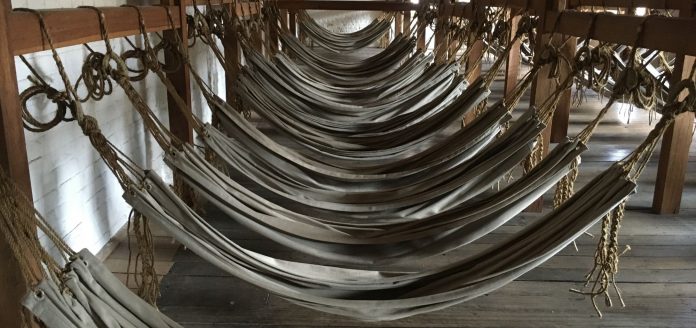Discover how big data is changing the way historians study transportation and the impact the penal system had on ordinary people, at a new talk.
The Shire Hall Historic Courthouse Museum on High West Street will be welcoming Professor Deborah Oxley, Professor of Social Science History at University of Oxford, and Dr David Meredith, Associate Member of the University of Oxford’s History Faculty in economic and social history, to the museum on Sunday, May 26th. Their talk will start at 1pm and include a lunch of soup and a roll in the Shire Hall Café (served from 12noon.)
Professor Oxley and Dr Meredith will be considering the role of penal transportation in the creation and destruction of England’s ‘Bloody Code’, the types of crimes included and the people it punished. The pair will look at how big data is changing the way historians’ study penal transportation and the impact the penal system had on ordinary people – many of who were sentenced in Dorchester’s Shire Hall courtroom. They will explore what this big data can tell us about the men and women, boys and girls who were transported to Australia, and how they laboured, loved and earned their freedom.
“Big data is an area that economic historians have been interested in since the 1960s”, Prof Oxley said, “the large body of data from those transported gives scientists a unique insight into the lives of ordinary 19th century working people.” The fields of anthropometrics and epigenetics, (studying the effects of factors like nutrition and climate and how these can be passed from generation to generation,) is a growing area of research – where science meets history. It helps scientists to answer questions like, ‘What was the effect of taking someone from a nutrient poor, damp climate such as the UK, to a warm, nutrient rich environment in Australia?’
Professor Oxley said the talk would encompass the latest research using big data. She said: “Transportation is a big topic. It will be a bit of a whirlwind tour from the role of transportation in the British penal justice system, looking at who was transported and why and then we will travel out to the colonies to think about the way convict transportation was organised and the consequences for both the transported convicts and the indigenous people of the countries they were taken to.”
The talk promises to be a fascinating look into the way the penal transportation shaped both Britain and Australia. There will also be a question and answer section so people can discuss the points raised. To book a place, please visit shirehalldorset.org or call 01305 261849.







